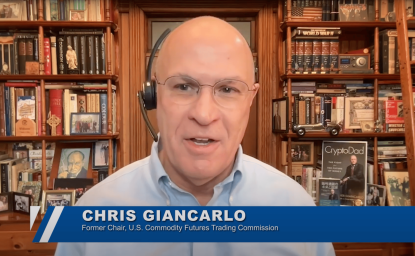The use of the word citizen as an adjective has become popular. Some use it by putting the adjective citizen in their acronym such as the Frente[1]. Others are taking the word out of their acronyms and replacing it with the movement one like Morena. Others are designating a candidate without political affiliation. The political parties have found an adjective to which they attribute purifying skills.
It is strange. Political parties exist, at least in theory, to represent citizens and to articulate their interests in policies that benefit them. But nobody wants to be called a political party of the masses or a corporate party anymore. Much less a party of cadres. As if the masses, the corporations, and the cadres were not composed of citizens.
The problem is that the idea of a political party has turned into bad karma: they reap what they have sown. If we follow the surveys, they have sown a great loss of prestige and are reaping it with great disdain. The number of voters who do not identify with any party has grown disproportionately.
When asked if you normally align yourself with the PAN, PRI, PRD or Morena, 61 percent of respondents answered in 2010 that for some of the first three parties and 37 percent said they were independent. For 2017 (including Morena), the figures had almost been reversed: 40 percent identified with one party and 56 percent with none (Buendía & Laredo, November 2017).
The story does not end there. In 2009, 23 percent of the population rejected the PRI, 27 percent rejected the PAN, and 35 percent rejected the PRD. In 2017, the rejection reached 60 percent, 35 percent, and 36 percent, respectively. In the case of Morena, the rejection is of 33 percent (Consulta Mitofsky, July 2017).
The parties have reacted in a rather childish, if not demagogic, way. Now they put themselves the name of citizens, reject the character of militants, say they represent more than just their own, open their doors to give some candidacies to people outside of traditional politics, or fill their mouths saying that their platform will be for the citizens. Before, the sense of belonging and party affiliation was a source of pride, the longer the data, the better; present a program that aligns with the ideology of the party; maintain cohesion according to the statutes; be pure instead of deceitful. Now anything partisanship seems to be a sin, almost a perversity.
It should be said that the citizen, running with or without party label and with or without the character of militant, is overvalued. As in all categories, in that amorphous aggregate that brings citizens together, there is everything: "bad" and "good", corrupt and honest, trained and incompetent, experts and novices, profit-driven citizens and those with a vocation for service.
But in addition to this concept being overvalued, the idea that a citizen can be transformed into a politician and, if he or she runs with luck, becomes a public official is also deceptive. Do you know of any citizen who has been able to govern without the support of the political parties? Probably not. And not because you are ignorant but because you cannot. Because political life is organized through parties like that of employers or workers or students around their business associations, unions, or student associations. In order to participate and influence, it is necessary to congregate, attract the will of other groups, give in, negotiate, agree... Even more so if it is about politics where the division of powers and plurality are the norm. The partisan coalitions are already defined and most of the candidates will be divided among their hosts. That's the way politics is and there's nothing strange about that.
If it is about "citizenizing" politics, there are better, I would even say more genuine, ways of doing it. The first is not to lock in their pre-conceptions and open their eyes and ears to the set of diagnoses and proposals that those who work in the "para-politics" have put to circulate in the public debate.
Active politicians and candidates cannot adopt the adjective "citizens" if they do not allow the participation of those who are not in their parties. It is not that they assume all the proposals of academia, analysts or members of civil society but that they do incorporate them into the debate and reason why they are right or wrong, why they are not viable or how they can be improved.
Active politicians and now the candidates who want to have a minimum credibility in their self-denominated citizenship, would have to show openness and respond to several challenges. For example, to say whether they embrace the reform proposal of #vamosporunafiscalíaquesirva[2] and IIJ-CIDE-INACIPE in terms of law enforcement; or the police reform of Causa en Común; or to legalize/regulate the consumption of certain drugs by members of the intellectual and scientific community; or that of the Public Works and Procurement Act of Mexico Evalúa; or the second round; or the adoption of the mechanism of open parliament in the designations of certain appointments and the end of partisan quotas; or Fundar's participation in the law on government advertising; or the various proposals on universal social security; or those of CONEVAL regarding inequality; what do they think of the criticisms and solution alternatives to the Law of Internal Security made by different organizations ...
More than putting “citizens” at the head of candidacies, they could begin by listening to them.
The views expressed here are solely those of the author.
[1] The “Por México al Frente” (‘For Mexico, up front’) alliance used the citizen term before registering their official name.
[2] It translates to: #LetsGoForAProsecutor’sOfficeThatWorks
Author

Mexico Institute
The Mexico Institute seeks to improve understanding, communication, and cooperation between Mexico and the United States by promoting original research, encouraging public discussion, and proposing policy options for enhancing the bilateral relationship. A binational Advisory Board, chaired by Luis Téllez and Earl Anthony Wayne, oversees the work of the Mexico Institute. Read more

Explore More
Browse Insights & Analysis
The Mexico Institute's 2018 Elections Guide



